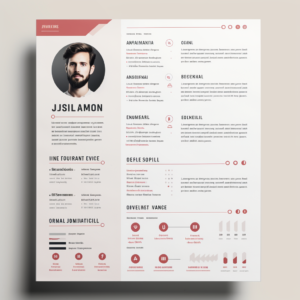From Startups to Enterprises
Human Resources (HR) management plays a pivotal role in shaping the workforce of any organization, but its dynamics vary significantly between small startups and large enterprises. This article delves into these differences and also explores the emerging role of the Employee Experience Manager, a position that’s gaining traction in modern workplaces.
HR Management in Startups
In the agile and often chaotic world of startups, HR managers typically wear multiple hats. They are not just responsible for traditional HR tasks like recruiting and payroll, but also often handle aspects of office management, culture building, and sometimes even operations. The role in a startup is characterized by a broader scope and a hands-on approach.
Key Characteristics:
- Versatility and Flexibility: HR managers in startups must be adaptable, ready to tackle diverse challenges beyond conventional HR boundaries.
- Strategic Recruitment: With limited resources, they focus on attracting talent that can wear multiple hats, fitting into the flexible and dynamic startup culture.
- Culture Champions: They play a critical role in shaping the company’s culture, often from the ground up.
HR Management in Enterprises
In contrast, HR managers in large enterprises operate within a more structured and specialized framework. They often lead specific HR functions such as talent acquisition, employee relations, or benefits administration. The focus is on scalability, process optimization, and aligning HR strategies with the overall corporate goals.
Key Characteristics:
- Specialization and Process Orientation: HR roles are more defined and process-driven, focusing on specialized areas within HR.
- Strategic Planning: Involvement in long-term workforce planning and organizational development aligning with the company’s strategic direction.
- Compliance and Risk Management: Greater focus on legal compliance, risk management, and maintaining standardized policies across a larger workforce.

This image was generated using the Discord AI platform.
HR Manager vs. Employee Experience Manager
While an HR Manager focuses on traditional HR functions, the role of an Employee Experience Manager is a relatively new concept centered around enhancing every aspect of an employee’s journey within the company.
- HR Manager:
- Scope: Manages recruitment, training, performance evaluation, and HR policies.
- Goal: Ensure efficient HR operations and compliance with labor laws.
- Employee Experience Manager:
- Scope: Focuses on creating a positive and engaging work environment, often leveraging feedback and data to improve employee satisfaction.
- Goal: Enhance employee engagement, productivity, and retention by improving the overall work experience.
Adapting to the Evolving Role
The role of HR professionals is continuously evolving, with a growing emphasis on strategic partnership, employee well-being, and organizational culture. Whether in a startup or a large enterprise, HR managers are increasingly recognized as key strategic partners, contributing to business growth and sustainability.
In startups, HR managers often help set the tone for rapid growth, fostering a culture that attracts top talent and drives innovation. In larger enterprises, they ensure that the HR strategies are scalable and aligned with the organization’s objectives, while also focusing on employee development and engagement.
Looking Ahead: The Future of HR Management
The future of HR management is likely to see even greater emphasis on technology and data-driven decision-making. HR professionals will need to adapt to new technologies and analytics tools that provide insights into workforce trends and employee behavior. The rise of remote work and global teams also poses new challenges for HR managers, who must find innovative ways to engage and manage a geographically dispersed workforce.
Further Reading
For a more comprehensive understanding of the HR Manager role, readers can refer to the detailed article on Forbes: What Does An HR Manager Do? This resource offers in-depth insights into the responsibilities, skills, and challenges faced by HR managers in various organizational settings.
Conclusion
In conclusion, HR managers play a critical role in shaping the workforce and culture of an organization, whether it’s a nimble startup or a sprawling enterprise. The emergence of the Employee Experience Manager highlights the increasing importance of employee engagement in today’s work environment. As the business landscape continues to evolve, so too will the roles and responsibilities of HR professionals, requiring continuous learning and adaptation to new trends and challenges. If you wish to dive more into the HR Manager position, check E-learn.guide’s article about Talent Acquisition: The Key to Building a Successful Workforce.












